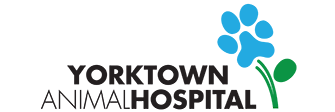National Poison Prevention Week
.jpg)
National Pet Poison Prevention Week takes place from March 17-23. It’s important to take a moment to ensure you know what to do if your pet ingests something dangerous. Below, find common household items that are unsafe for pets and learn what to do if your pet finds them.
OTC Medication & Prescriptions
Accidental consumption of medications is one of the most common reasons why owners call the Pet Poison Hotline. Beware of over-the-counter pain relievers and prescription medication, such as antidepressants and vitamins. Never administer any OTC medication to your pet without consulting one of our veterinarians first and be sure to keep medications out of reach of your pets.
Dangerous People Food
When in doubt, stick to pet food! We know it can be tempting when those puppy-dog eyes and purr-ecious kitty pouts start to beg, but some human foods are not safe. The following foods are extremely dangerous:
- anything with xylitol (including some peanut butter, gum, and sugar-free items)
- all forms of chocolate
- grapes
- raisins
- garlic
- onion
- salt
- animal bones (especially chicken)
- avocado
- macadamia nuts.
Find a full list of toxic foods >
House Plants
Plants may bring brightness to your house but pose a hazard to your pets if ingested. Avoid plants such as:
- Lilies
- Sago palms
- Oleander
- Cyclamen
Find a full list of dangerous plants >
Household Chemicals
A clean house is a happy house, but use caution and keep certain products out of reach from your pet. These products include:
- Laundry and toilet tablets
- Dryer sheets
- Carpet cleaners
- Bleach
- Antifreeze
- Insecticides
- Rodenticides
- Fertilizers
- Keep all products locked away from curious pets.
Find a complete list of household toxins >
If you think your pet may have ingested a potentially poisonous substance, call us immediately at (914) 962-3111.
Need Help After Hours?
ASPCA Animal Poison Control Center (APCC) at (888) 426-4435
*A consultation fee may apply.
